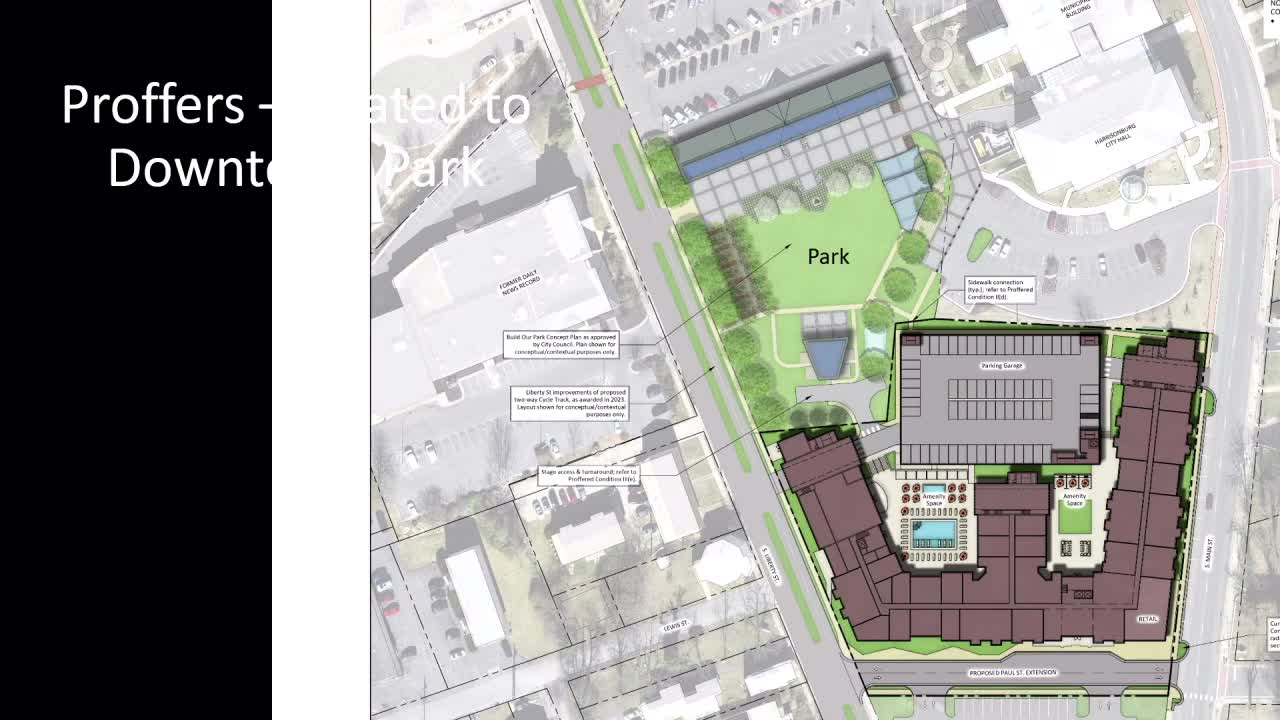City planners present sustainability plans for 265 apartment development near Keister Elementary
July 09, 2025 | Harrisonburg (Independent City), Virginia
This article was created by AI summarizing key points discussed. AI makes mistakes, so for full details and context, please refer to the video of the full meeting. Please report any errors so we can fix them. Report an error »

Harrisonburg's Planning Commission made significant strides towards sustainable development during their recent meeting on July 9, 2025. The commission discussed a new residential project that will include dedicated easements and several sustainability features aimed at enhancing community living.
The proposed development will incorporate infrastructure for future solar panel installations, electric vehicle (EV) charging stations, and secure indoor bicycle parking, alongside outdoor bicycle parking spaces. These features reflect a growing commitment to sustainability and eco-friendly practices within the city.
In addition to sustainability measures, the commission addressed the impact of the new development on local schools. For the 265 apartments planned in the Keister Elementary School District, the Weldon Cooper Center's calculations estimate an increase of 88 students in grades K-12. This marks a shift from previous calculations based on Harrisburg City Public Schools data, highlighting a coordinated effort to utilize more accurate demographic studies.
The Weldon Cooper report takes into account various factors, including historical trends and adjustments for students from James Madison University, ensuring a comprehensive understanding of how new developments affect local educational resources. Each school district has unique generation rates for student enrollment, which will be reflected in future reports.
As Harrisonburg continues to grow, the Planning Commission's focus on sustainable development and accurate demographic assessments will play a crucial role in shaping the community's future. The integration of these elements not only supports environmental goals but also ensures that local infrastructure can accommodate the needs of a growing population.
The proposed development will incorporate infrastructure for future solar panel installations, electric vehicle (EV) charging stations, and secure indoor bicycle parking, alongside outdoor bicycle parking spaces. These features reflect a growing commitment to sustainability and eco-friendly practices within the city.
In addition to sustainability measures, the commission addressed the impact of the new development on local schools. For the 265 apartments planned in the Keister Elementary School District, the Weldon Cooper Center's calculations estimate an increase of 88 students in grades K-12. This marks a shift from previous calculations based on Harrisburg City Public Schools data, highlighting a coordinated effort to utilize more accurate demographic studies.
The Weldon Cooper report takes into account various factors, including historical trends and adjustments for students from James Madison University, ensuring a comprehensive understanding of how new developments affect local educational resources. Each school district has unique generation rates for student enrollment, which will be reflected in future reports.
As Harrisonburg continues to grow, the Planning Commission's focus on sustainable development and accurate demographic assessments will play a crucial role in shaping the community's future. The integration of these elements not only supports environmental goals but also ensures that local infrastructure can accommodate the needs of a growing population.
View full meeting
This article is based on a recent meeting—watch the full video and explore the complete transcript for deeper insights into the discussion.
View full meeting
